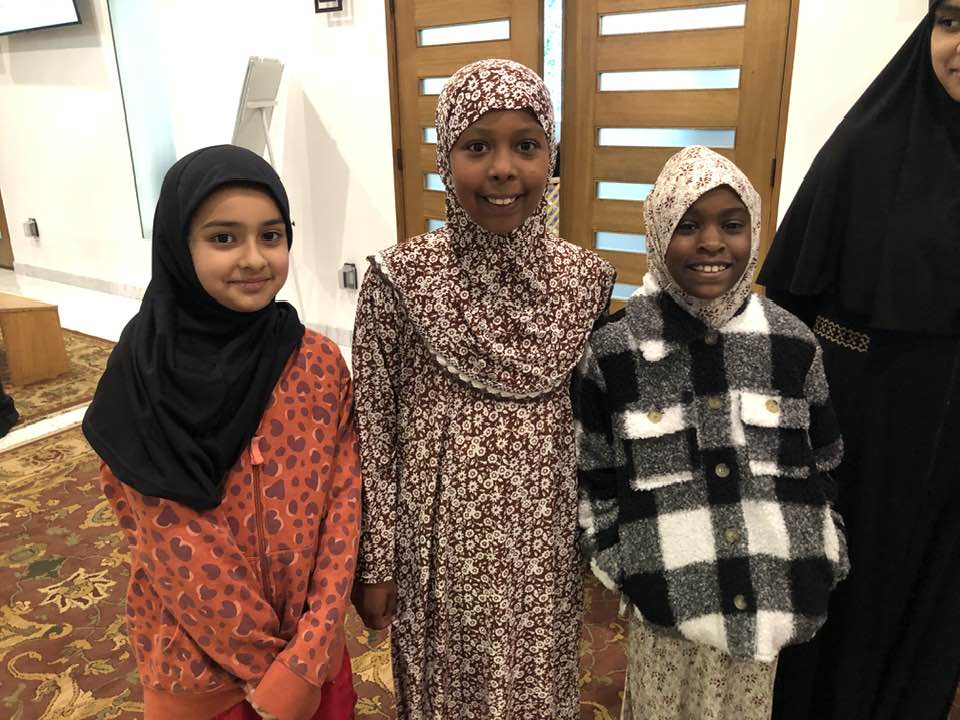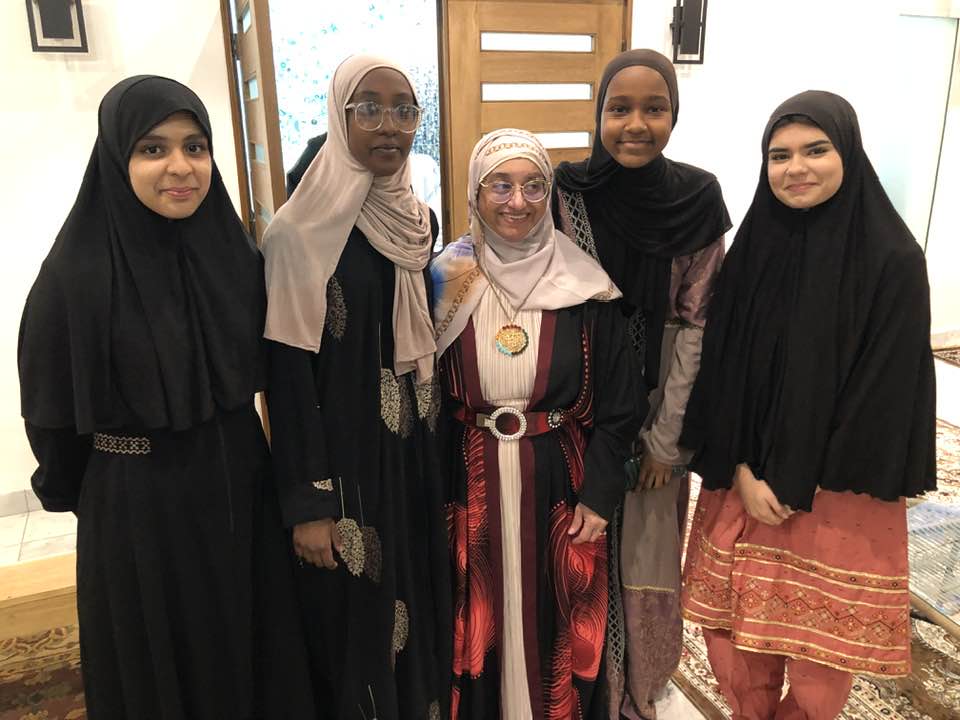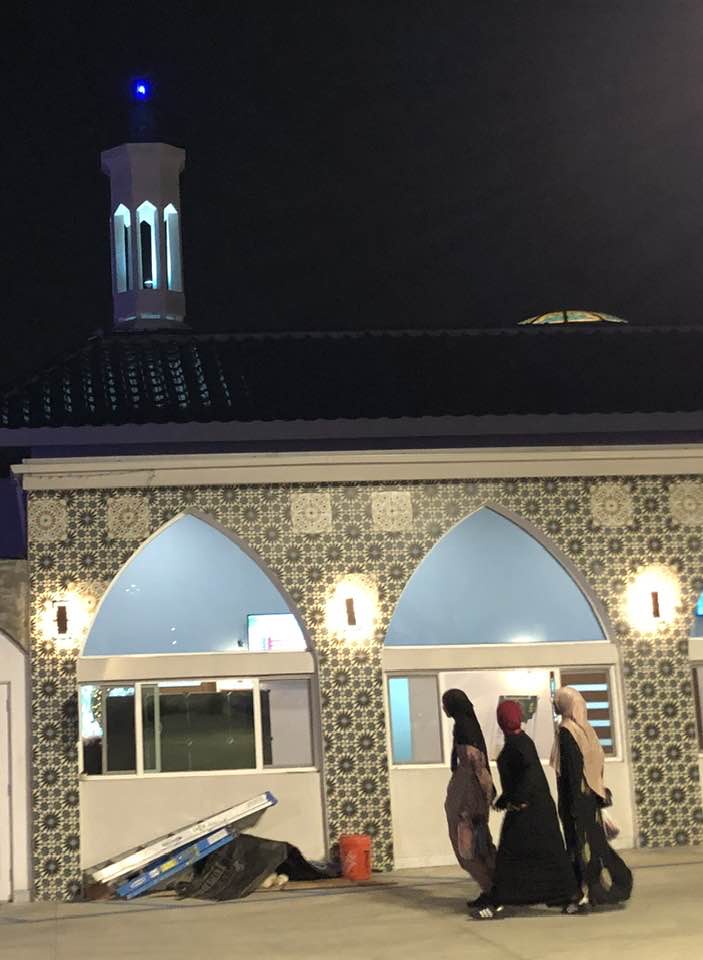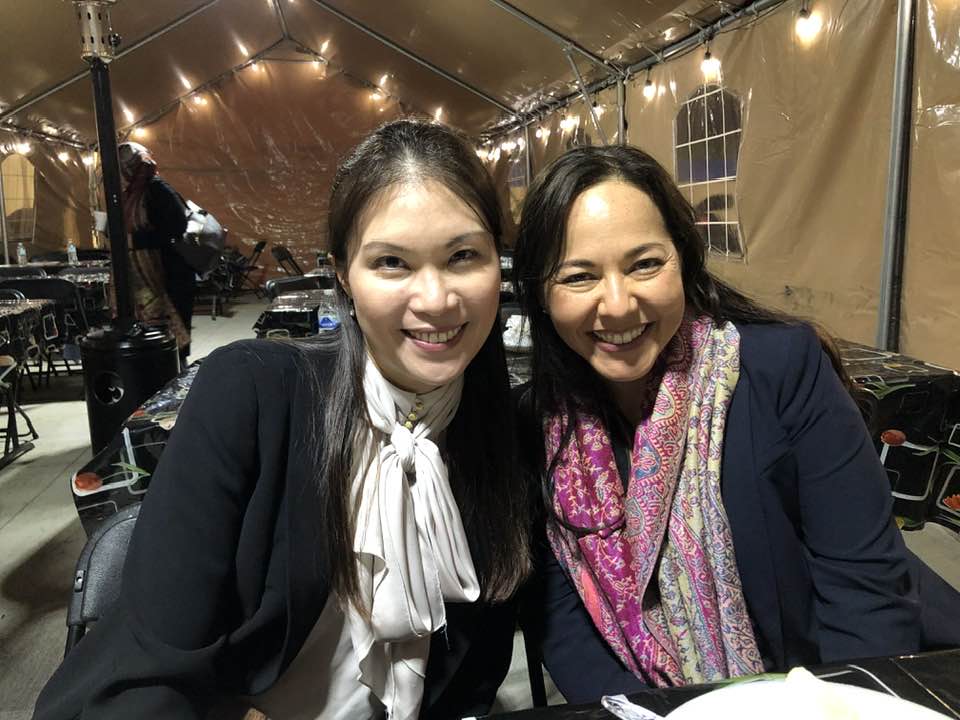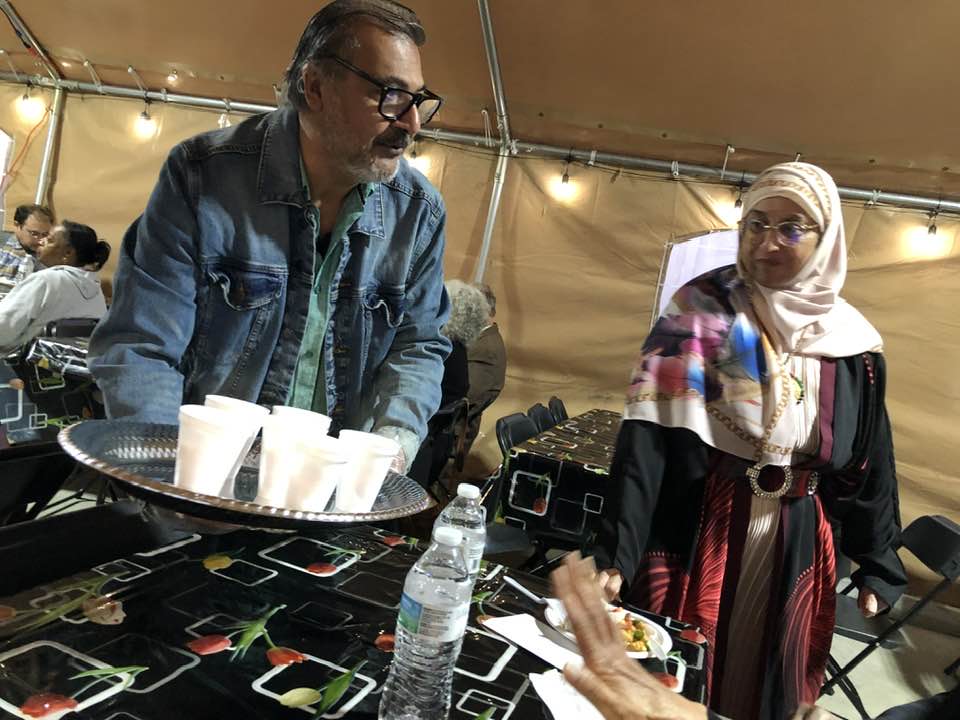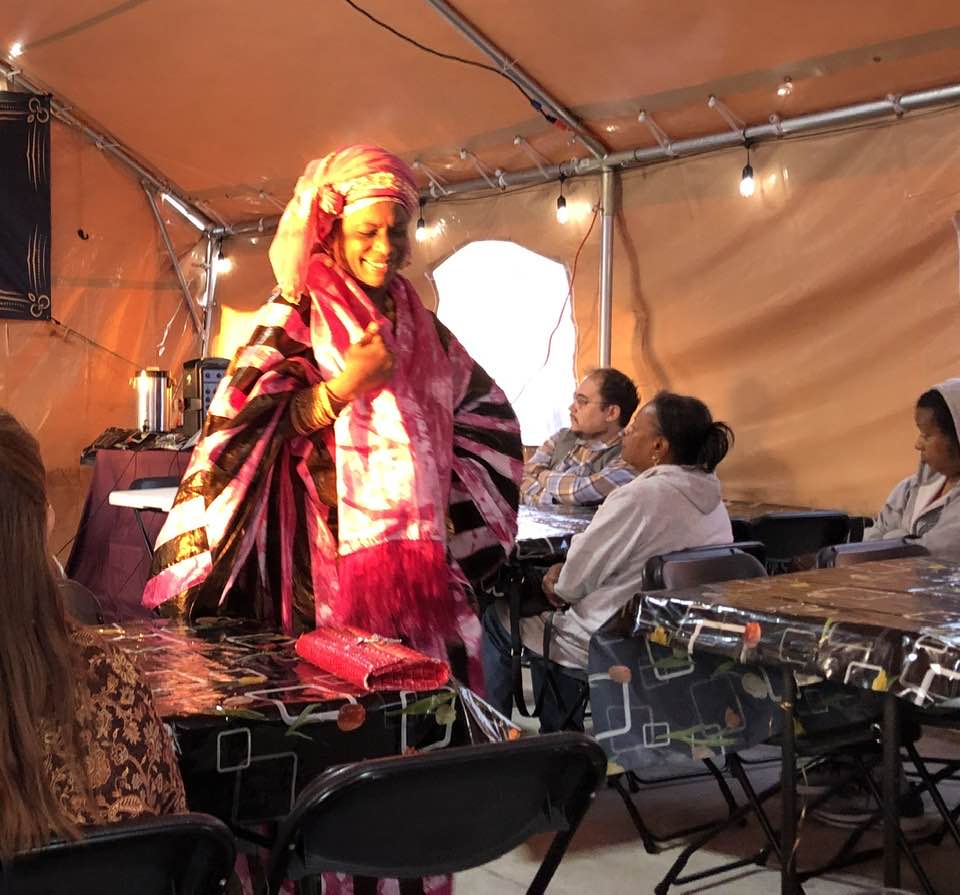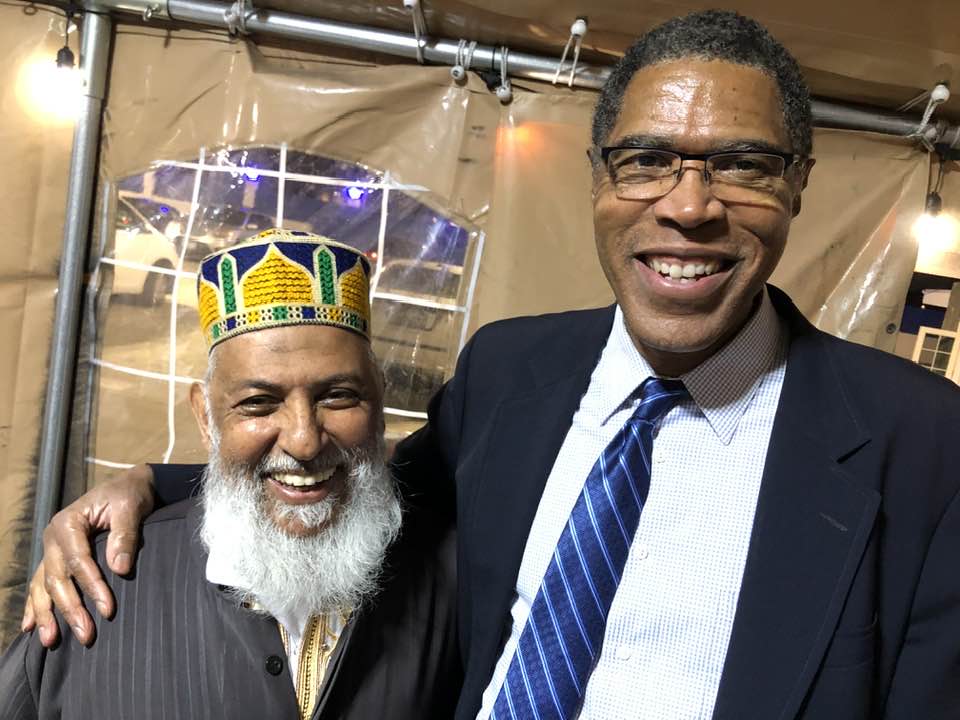
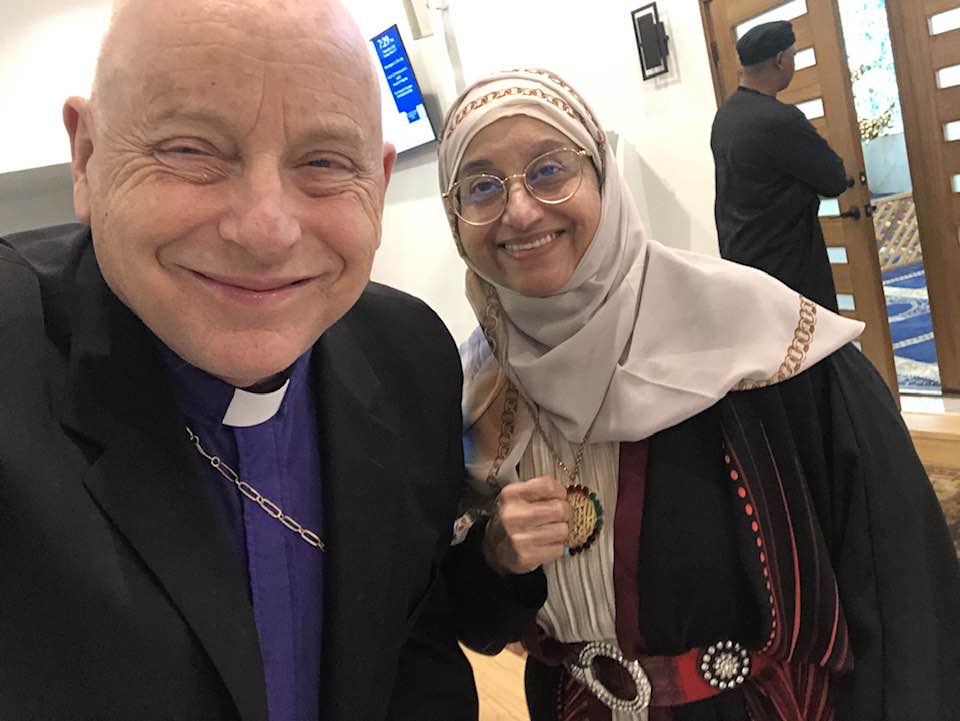
On Sunday evening, the seventh day of Ramadan, I was blessed to be invited to join what felt like a family of about 40 at an interfaith Iftar, or breaking of the fast, at the International Institute of Tolerance in Carson. I was the guest of Athia Carrim, IIT’s education and interfaith director and also the spouse these 41 years of Imam Qari Ashraf Carrim, who founded the center in 2007 after he and Sister Athia emigrated from South Africa. She and I are participants in a Clinton Foundation program on addiction underway all this year at St. Paul’s Commons.
The Carrims built their beautiful mosque and study center during the two worst years of COVID, on the site of an old machine shop on Main St. She told me with a smile that friends weren’t sure how welcome they’d be in Carson, because there was no mosque. That struck her and her husband as a good reason to build one. Among the speakers at the Iftar was city council member and former mayor Jim Dear, who said the city was proud to have IIT in town. Two L.A.-based FBI special agents were also aboard, including Camay Chu, with whom I compared notes about Christianity and the Chinese diaspora. She and her colleague said religion-based threats are up because of the Oct. 7 Hamas attack on Israel and the Gaza war.
By and large, though, it felt like being at a parish dinner. Two teenaged girls spoke about what they were learning from Sister Athia in three classes a week during Ramadan. Spend more quality time with family and friends. Don’t gossip or be mean on social media. Do good for others, and say your prayers. Isatu N. Timbo, Sierra Leone’s honorary consul to Los Angeles, said that the imam and Athia had comforted and counseled her after her husband died in 2010, leaving her with two school-age children, and all the years since. Both daughters are successfully through medical school.
I got to know John and Nasreen Jordan, diagnostic radiologist and nurse and longtime IIT friends. As the closing speaker, John spoke movingly of the unity of humanity, according to faith and science, springing as it did from Africa and divided against itself not by God but by our sin. He called us to identify our authority to recover the unity God intends. Even as famine threatens Gaza, he said, its Muslims are observing the Ramadan fast and devoting themselves to acts of charity. In her welcoming remarks, Sister Athia said that God looks at the world and sees land embraced by a single body of water. Oceans’ names and the borders dividing them, she said, do not improve on the creator’s vision.
As the sun set, volunteers offered dates, fruit, and nuts. I felt self-conscious, since I’d only been fasting since a splendid lunch at Grace Episcopal Church in Glendora. But nothing about the evening was designed to make anyone feel like an outlier. Athia, who has been cohosting the interfaith Iftar for 15 years, invited me into the mosque for prayers. Men and women worshiped in separate groups but, at the imam’s insistence, in the same room. During prayers, video screens displayed upcoming community events. A delicious dinner and more conversation followed. That feeling you get, having been to church with welcoming people who love God and want to do the best they can? That’s exactly how it felt.
